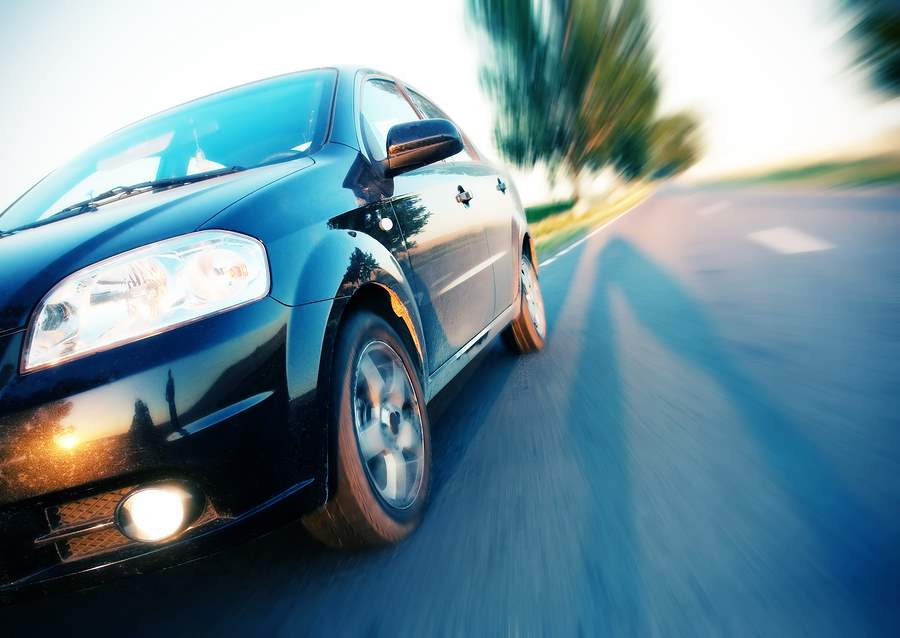It’s a thrill that kills.
As of now, it’s positively impossible to completely prevent drivers speeding in motor vehicles. Law enforcement can only do so much; speed bumps, chicanes, traffic circles, and other “traffic-calming elements” are only effective for a short time, not to mention—familiar drivers often try to avoid them regardless. A speed trap—or patrol vehicle parked in an inconspicuous location specifically watching for unaware speeding drivers—are easily combated by radar detectors. I’ve seen a lot of local police activity on the Clearwater Memorial Causeway, where people are pulled over for speeding on a constant basis.
However, many anti-speeding advocates are hoping for the ban of these radar detectors—sometimes known as “fuzzbusters”—claiming that they promote speeding. Radar detectors emit tones in the presence of nearby police radio signals and allow equipped drivers to travel at faster speeds worry-free for long periods of time. Currently, it’s absolutely legal to have a radar detector in Florida, with only one exception; commercial vehicles that weigh more than 10,000 pounds are banned from using them, and that’s a federal law, meaning it applies to all states in the U.S. That’s no surprise though—speeding cars are bad enough, but speeding trucks and other large commercial vehicles can increase those damages tenfold.
Why do people speed?
Believe it or not, traffic can make it pretty hard to speed during the day. Even experienced drivers have their difficulties recklessly weaving through traffic to minimize their travel time. Most devastating accidents which occur due to someone’s negligent actions behind the wheel are preventable, but only by the driver him/herself. Despite the popular road safety saying which states “the best traffic safety device is a rear view mirror with a cop in it”, the driver is the only one who’s reasonably capable of putting a lid on their own reckless roadway behavior.
And unfortunately, that’s not been a very good anti-speeding method. Relying on drivers to behave responsibly out of their own good will probably sounds like something straight out of a fantasy book. With that said, speeding is inevitably going to happen; and it does. Whether someone is late for work, in a medical emergency, or just eager for a thrill, going over the speed limit is an activity that most drivers have participated in at least once. Sometimes drivers are aware of the fact that they’re speeding; sometimes they’re not.
Because around 75% of drivers are out during the day, crashes are plentiful. Daytime traffic is frustratingly bumper-to-bumper; accidents ranging from fender-benders to high-speed collisions are expected. However, who would have guessed that more accidents happen at nighttime?
Accidents at nighttime are more common than you may think.
Even at only a quarter of the Florida driver population (on average) being out at night, more than 50% of crashes occur at that time. In 2015, it’s estimated for around 210,000 crashes to occur over the course of the year. That means we can expect over 55,000 of them to occur during the dark hours. Intoxicated drivers negligently enjoying the freedom of the weekend nightlife; overconfident drivers who are incapable of maintaining control of their vehicle in high-speed situations; even safe drivers who are temporarily blinded by unnecessarily bright high-beam headlights; these are all examples of why so many accidents occur at night, even with the desolate roads.
How can the reckless driving of another affect you?
Perhaps you’re a pedestrian; no one should disagree that pedestrians can be difficult to spot in low-light settings. As a pedestrian, it’s important to bear visibility-boosting clothing items or objects to better assist drivers in seeing you. Most vehicles are expected to have automatic headlights nowadays; however, older vehicles still roam the roads in masses. Should a driver forget to turn on their manual headlights at night, a crossing pedestrian that proceeds across the road is in serious danger. Even with the flashing orange yield light that aims to warn drivers of crosswalk activity, a young man from Boston was struck by an inattentive, negligent driver. The injuries sustained resulted in a debilitating brain condition for the pedestrian.
This is only one of the countless saddening accidents that happen every day due to someone else’s negligent driving choices. Sadly, a reckless driving victim has no control over the outcome of an accident caused by another person—they’re forced to live with the consequences as well, but they didn’t ask for this. These innocent drivers who suffer serious losses deserve a helping hand, and that’s where we come in.
SPEAK WITH AN EXPERIENCED AUTOMOBILE ACCIDENT ATTORNEY IN THE CLEARWATER & TAMPA BAY AREA FOR FREE
If you or a loved one has suffered any losses—physical, mental, emotional, financial—due to someone else’s negligence, it’s important to speak with an experienced personal injury attorney as soon as possible. Here at Dolman Law Group Accident Injury Lawyers, PA, we strive to assist local victims of negligence in securing the financial compensation that they deserve for injuries or other losses that have occurred due to another party’s lack of care. We offer a free consultation and case evaluation, giving you the ability to learn your rights and options with no strings attached.
Call us today to speak with a knowledgeable lawyer that will point you in the right direction at 727-451-6900.
Dolman Law Group Accident Injury Lawyers, PA
800 North Belcher Road
Clearwater, FL 33765
727-451-6900






